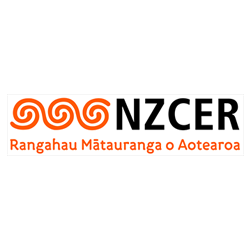
Ka Whānau Mai Te Reo: I Roto i Te Wānanga
Status
Completed: 9 November 2017
Project Details
A four-year project to explore whānau experiences of reo Māori education in tertiary settings, with a specific focus on Te Wānanga o Raukawa and the research question: How well prepared is the tertiary sector to support whānau Māori language aspirations? A collaboration between Te Wānanga o Raukawa, Te Wāhanga New Zealand Council of Educational Research (NZCER).
Aims:
The project aimed to show how Te Wānanga o Raukawa supports whānau reo development and share the project findings across the tertiary sector to strengthen reo Māori learning environments in tertiary settings.
Methodology:
The project used a kaupapa Māori research methodology (based on the idea of locating whāna aspirations, priorities, and worldviews at the centre of the research) to investigate Māori language development as experienced by whānau.
Team

Dr Jessica Hutchings
Project leader
Te Wāhanga | New Zealand Council of Educational Research (NZCER)
Sally Boyd
Te Wāhanga (NZCER)
Nicola Bright
Te Wāhanga (NZCER)
Debbie Broughton
Te Wāhanga (NZCER)
Alex Hotere-Barnes
Te Wāhanga (NZCER)
Melanie Berg
Te Wāhanga (NZCER)
Sonya Daly
Te Wānanga o Raukawa
Ani Mikaere
Te Wānanga o Raukawa
Milton Rauhihi
Te Wānanga o Raukawa
Heitia Raureti
Te Wānanga o Raukawa
Āneta Rāwiri
Te Wānanga o Raukawa
Huia Winiata
Te Wānanga o RaukawaStatus
Funding
$504,973.00 (excl GST)
Key Findings
Findings about tertiary education organisations
- TEOs made an important contribution to supporting whānau reo Māori aspirations beyond compulsory education in a range of ways, including providing courses to learn te reo Māori.
- TEOs ranged from small to national providers with staff and students across multiple campuses.
- Finding out about the reo Māori courses that a TEO offered was easily done prior to enrolment. However, it was difficult to find out how a TEO supported te reo Māori, and reo Māori learners and speakers, on a daily basis.
Findings about how te reo Māori is positioned in the tertiary sector
- Te reo Māori was more than an academic subject to whānau; it was connected to their survival as Māori. Aspirations were multigenerational and connected to whakapapa and te ao Māori.
- The protection of te reo Māori as a taonga and its status as an official language is enshrined in legislation and government documents. However, there appeared to be a mismatch between the intent of education policy, its implementation, and tertiary resourcing for te reo Māori.
- Te reo Māori was funded at the same baseline Student Achievement Component (SAC) funding rates as other language or arts subjects, and had not received targeted increases.
- It was timely for tertiary funding of te reo Māori to be set at a level that reflected its importance for Māori, and its status as a taonga, and official language of Aotearoa.
- Personal and institutional attitudes constrained support for reo Māori learners and speakers.
- Attitudes towards te reo Māori in TEOs, either positive or negative, had an impact on support for reo Māori learners and speakers.
- Many TEO staff members said that they had experienced negative attitudes at personal and institutional levels that created barriers for reo Māori learners and speakers.
- The TEO sector did not have a set of common strategies, policies, and practices for supporting reo Māori learners and speakers.
- There were a wide variety of strategies, policies, and practices to support te reo Māori in TEOs.
- TEO activities supported some, but not the full range, of the reo Māori aspirations of whānau.
- A well-prepared TEO needed multiple, inter-related policies and practices to support whānau reo Māori and transitioning reo Māori learners and speakers to achieve their diverse aspirations.
Findings about TEO practices that support whānau reo Māori aspirations
- A well-prepared TEO would have multiple, interrelated policies and practices to support whānau reo Māori aspirations, transitioning reo Māori learners and speakers, and te reo Māori.
- The research project designed a framework to assist TEOs to consider their practices alongside the range of whānau aspirations; to consider where their efforts were currently focused, and to identify practices that could contribute to a wider range of whānau reo Māori aspirations.
- The framework was developed as a tool for reflection and discussion that could accompany strategic planning for te reo Māori.
Findings on good practices among TEOs
- TEOs were developing and customising some practices to support reo Māori learners and speakers and whānau, hapū, and iwi aspirations.
- Support practices were grouped to encourage TEOs to reflect on their practices and broaden the range of practices used and expand their contribution to te reo Māori development.
- The research project identified questions for whānau to ask TEOs about the TEO's support for te reo Māori; to make decisions about participating in tertiary study of te reo Māori; and to guide conversations with TEO staff to find out about their support for te reo Māori on a daily basis.
Key Recommendations
Increase the number of people with low-level fluency | Many TEOs are sufficiently prepared to contribute to increasing the number of people with low-level fluency in te reo Māori.
Increase support by TEOs | TEOs are part of a complex support system for the reo Māori aspirations of learners, speakers, their whānau, hapū, and iwi. What happens at home, in TEOs, and in communities can either enable or constrain reo Māori development. Each part of this complex support system for te reo Māori needs to be strong to provide the best possible support for the range of whānau aspirations.
A shift in thinking is required | For TEOs that do not have whānau, hapū, and iwi aspirations for te reo Māori as a foundation, the question is whether they can take on board these aspirations and create transition processes and everyday practices that work within this complex system. A clear shift in thinking will be required for some TEOs.
A report prepared by Debbie Broughton, Jessica Hutchings, and Nicola Bright.
(PDF, 674 KB, 80-pages).
- 9 November 2017
A key findings and tools summary report prepared by Debbie Broughton, Jessica Hutchings, and Nicola Bright.
(PDF, 157 KB, 10-pages).
- 9 November 2017